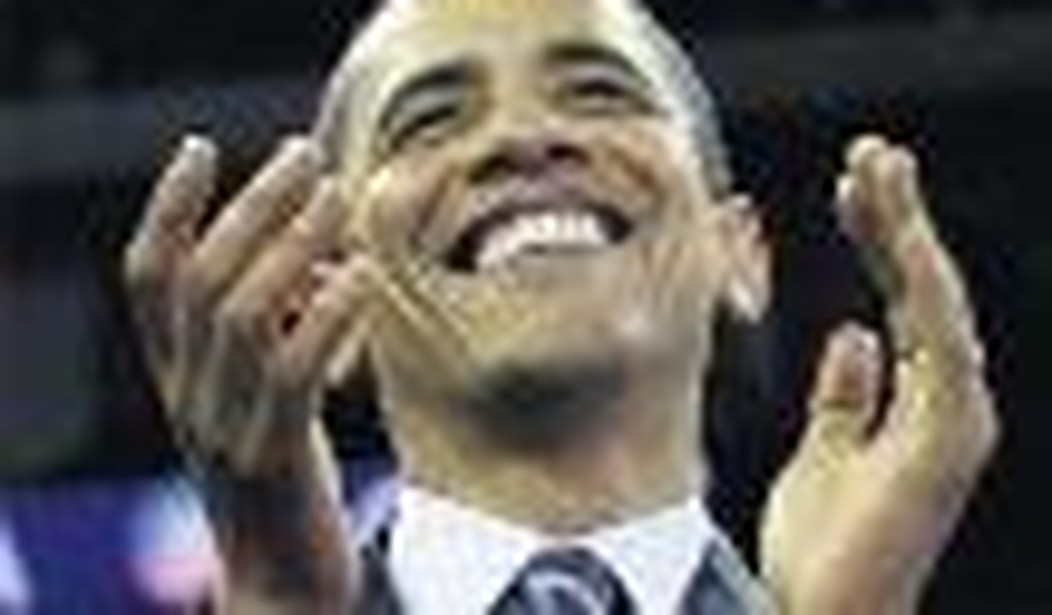Two wrongs don’t make a right, but for Barack Obama a second chance to deal with the radical rantings of his preacher may put his suddenly faltering campaign back on track.
When Reverend Jeremiah Wright’s vitriolic sermons gained national attention a month ago, Obama was reluctant to disavow him. He danced around what he knew, what he had heard and not heard from the pulpit over the past twenty years at Trinity United Church of Christ, and whether he ever confronted Wright about his sermons. By mishandling the affair, Obama provided an opening that Hillary Clinton and her team were quick to exploit.
Obama got a second chance this week when Wright gave a series of high profile speeches and interviews. He made the most of his “mulligan” by clearly and unequivocally denouncing his former pastor. “I am outraged by the comments that were made and saddened by the spectacle that we saw,” Obama announced at a press conference in North Carolina a day after Wright’s incendiary presentation to the National Press Club.
“The person that I saw yesterday was not the person that I met 20 years ago,” he said. “His comments were not only divisive and destructive, but I believe that they end up giving comfort to those who prey on hate, and I believe that they do not portray accurately the perspective of the black church. They certainly don’t portray accurately my values and beliefs. I gave him the benefit of the doubt in my speech in Philadelphia, explaining that he has done enormous good in the church,” Obama told an audience in Winston-Salem. “But when he states and then amplifies such ridiculous propositions as the U.S. government somehow being involved in AIDS; when he suggests that Minister Farrakhan somehow represents one of the greatest voices of the 20th and 21st century; when he equates the U.S. wartime efforts with terrorism — then there are no excuses. They offend me. They rightly offend all Americans. And they should be denounced, and that’s what I’m doing very clearly and unequivocally here today.”
Obama’s rejection of his former preacher will evoke some outrage among a narrow minority of those who think Wright is right, but the broader range of American voters are almost certain to embrace Obama’s harsh criticism of the racist and conspiratorial wackiness espoused by Wright. Was that the intent all along, or has Obama simply taken advantage of the opportunity to have a “Sister Souljah” moment?
In 1992 hip-hop artist and political activist Sister Souljah was asked during a Washington Post interview about the riots in Los Angeles that occurred in the wake of the acquittal of police officers who had beaten black motorist Rodney King following a high speed chase. Souljah noted that “black people kill black people every day; why not have a week and kill white people.”
A few weeks later, Presidential candidate Bill Clinton was speaking at a Rainbow Coalition conference hosted by Jesse Jackson and used a portion of his speech to attack Souljah’s comments. Although Jackson and other black leaders criticized Clinton for his position, the repudiation of the racist statement by Souljah allowed Clinton to demonstrate to moderate voters, both black and white, that he was not going to pander to Jackson and the extremist elements in the black community.
Obama has essentially accomplished the same thing with his denunciation of Wright. And this time he did not have to throw his grandmother under the bus to do it. Wright is not likely to disappear from the debate over race in the months ahead, but, by taking full advantage of his “do-over,” Obama will now be able to stop the bleeding and close the deal for the Democratic Party nomination.
Steve Gill is a political analyst and statewide radio talk host in Tennessee. His website is www.gillreport.com.









Join the conversation as a VIP Member